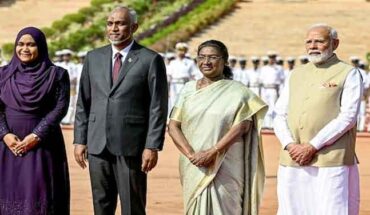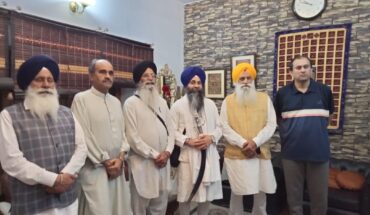New Delhi: Prime Minister Narendra Modi said the recent developments in Afghanistan have shown that increasing radicalisation is the “root cause” of the biggest challenges to peace and security in the region.
Speaking virtually at the summit meeting of the Shanghai Cooperation Organisation (SCO) in Bishkek, PM Modi also called for enhancing connectivity between land-locked Central Asia and India.
In a jibe at the China’s Belt and Road Initiative (BRI) which passes through Pakistan Occupied Kashmir (PoK), the PM noted that connectivity projects should be transparent and must respect the territorial integrity of all countries. In line with this approach, India disassociated itself from a paragraph in the SCO’s Bishkek Declaration that reaffirmed support for China’s One Belt and Road Initiative (OBOR). Support from other countries was smoothened by President Xi Jinping’s announcement of a 30 billion credit for countries on the OBOR route.
Among fresh initiatives, the SCO decided to set up its own development bank providing long-term finance for infrastructure projects and will be the third such multilateral institution after the NDB and AIIB to be independent of the US-controlled IMF, World Bank and ADB.
It also decided to create a mechanism for meeting of Energy Ministers of SCO Member States, who are split between major energy supplies and consumers.
In a hint at the Taliban to form a broad-base government, the SCO used strong language to recommend an inclusive government with representatives from all ethnic, religious and political groups of Afghan society. The meeting approved the full membership of Iran and inclusion of Saudi Arabia, Egypt and Qatar as new dialogue partners.
The SCO Declaration also made an important mention about checking terrorism by implementing existing global standards on the financing of terrorism. Indian has consistently kept Pakistan in the eye of the global money laundering watchdog FATF which has kept it on a special watch list for the past couple of years.
The sidelines of SCO also hummed with activity. External Affairs Minister S Jaishankar interacted with Iran’s new President and Foreign Minister as well as Sergei Lavrov, the Russian Foreign Minister.
Also on the sidelines, the Quad of Russia, China, Pakistan and Iran issued a joint statement on Afghanistan which called for a broad-based and inclusive political framework. The Chinese President too asked Kabul to adopt “prudent and moderate’’ domestic and foreign
policies.AGENCIES




